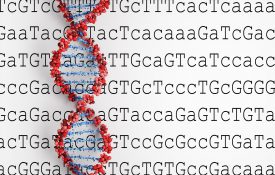-
A Walk in the Park Improves Attention
If you spend the majority of your time among stores, restaurants and skyscrapers, it may be time to trade in your stilettos for some hiking boots. A new study in Psychological Science, a journal of the Association for Psychological Science, reveals that spending time in nature may be more beneficial for mental processes compared to being in urban environments. Psychologists Marc G. Berman, John Jonides, and Stephen Kaplan from the University of Michigan designed two experiments to test how interactions with nature and urban environments would affect attention and memory processes. First, a group of volunteers completed a task designed to challenge memory and attention.
-
More Than Just Being a Sentimental Fool: The Psychology of Nostalgia
In the 17th and 18th centuries, nostalgia was viewed as a medical disease, complete with symptoms including weeping, irregular heartbeat and anorexia. By the 20th century, nostalgia was regarded as a psychiatric disorder, with symptoms such as insomnia, anxiety and depression and was confined to a few groups (e.g. first year boarding students and immigrants). Only recently have psychologists begun focusing on the positive and potentially therapeutic aspects of nostalgia, report University of Southampton psychologist Constantine Sedikides and his colleagues in Current Directions in Psychological Science, a journal of the Association for Psychological Science.
-
When 2 + 2 = Major Anxiety: Math Performance in Stressful Situations
Imagine you are sitting in the back of a classroom, daydreaming about the weekend. Then, out of nowhere, the teacher calls upon you to come to the front the room and solve a math problem. In front of everyone. If just reading this scenario has given you sweaty palms and an increased heart rate, you are not alone. Many of us have experienced math anxiety and in a new report in Current Directions in Psychological Science, a journal of the Association for Psychological Science, University of Chicago psychologist Sian L. Beilock examines some recent research looking at why being stressed about math can result in poor performance in solving problems.
-
Conscious vs. Unconscious Thought in Making Complicated Decisions
When faced with a difficult decision, we try to come up with the best choice by carefully considering all of the options, maybe even resorting to lists and lots of sleepless nights. So it may be surprising that recent studies have suggested that the best way to deal with complex decisions is to not think about them at all—that unconscious thought will help us make the best choices. Although this may seem like an appealing strategy, new research in Psychological Science, a journal of the Association for Psychological Science, cautions that there are limitations in the efficacy of unconscious thought making the best decisions. Duke University researchers John W.
-

The Effect of Parental Education on the Heritability of Children’s Reading Disability
A twin study suggests a significant interaction between parents’ years of education and the heritability of reading disability.
-
Racial Tension in a “Split-Second”
Interracial and interethnic interactions can often be awkward and stressful for members of both majority and minority groups. People bring certain expectations to their interactions with members of different groups—they often expect that these interactions will be awkward and less successful in establishing positive, long-lasting relationships than interactions with members of one’s own racial or ethnic group.

